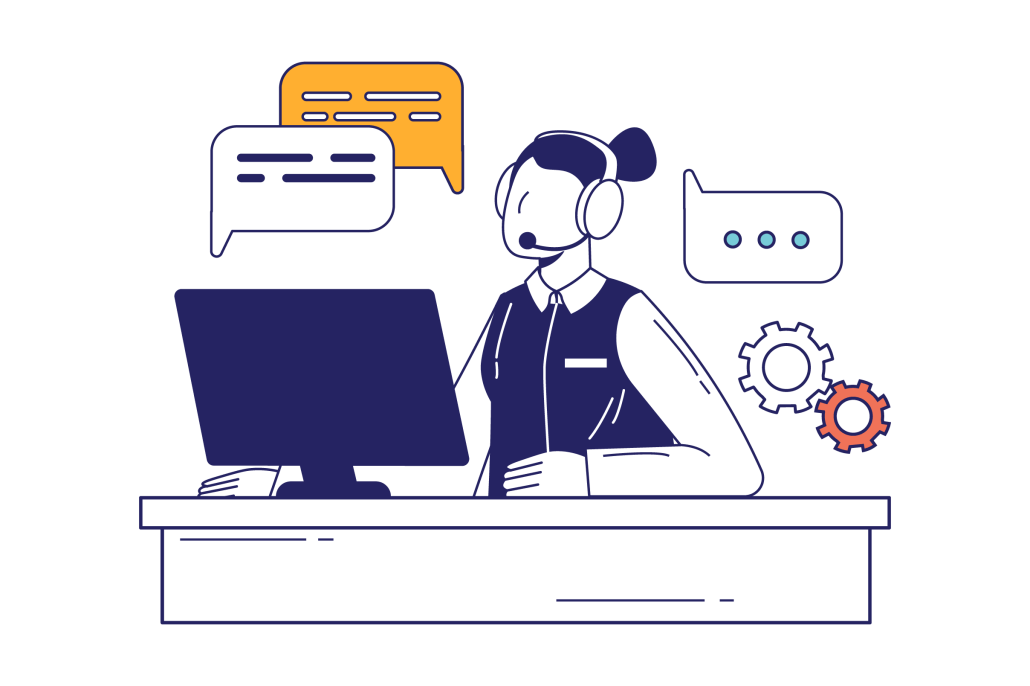
07.09.2024 - 5 minute read
HARNESSING THE POWER OF MODERN AI DRIVEN CRM SYSTEMS IN THE DIGITAL ERA
In today’s data-saturated, algorithmically-driven economy, the ability to extract, interpret, and act on customer intelligence is no longer a competitive advantage—it is a survival imperative. At the heart of this evolution lies the modern CRM (Customer Relationship Management) platform. No longer static databases of contact information, CRM systems have evolved into dynamic, AI-enhanced engines of growth, capable of transforming every customer interaction into a data-driven opportunity.
Why CRM Systems Matter More Than Ever—Especially with AI in the Mix
The digital transformation of business has created a paradox: while the availability of customer data has increased exponentially, so too has the complexity of understanding it. Legacy systems built for transactional data capture are inadequate for the nuanced, real-time decision-making required in today’s environment.
This is precisely where AI-infused CRM platforms are proving indispensable. These systems don’t just store information—they contextualize it. They learn from it. And, critically, they use it to anticipate needs, automate workflows, and drive highly personalised, scalable customer experiences that were previously unthinkable.
The Intelligent Evolution of CRM: From Databases to Cognitive Companions
CRM platforms have come a long way from their origins as glorified Rolodexes. Over the past decade, and especially in the last few years, they have undergone a profound metamorphosis. Here’s how:
Phase 1: Contact & Pipeline Management – Basic tools for tracking interactions and sales opportunities.
Phase 2: Integration & Workflow Automation – Integration with email, calendars, and marketing tools enabled streamlined operations.
Phase 3: Data-Driven Insights – Dashboards and reports offered static views of sales pipelines and customer behaviour.
Phase 4: AI-Enhanced Intelligence (Today) – Predictive analytics, natural language processing (NLP), sentiment analysis, lead scoring, churn prediction, and autonomous task management.
The shift from CRM as a tool to CRM as a thinking partner has fundamentally changed how businesses operate.
1. Delivering Hyper-Personalised, Predictive Experiences
AI-enabled CRMs analyse vast amounts of structured and unstructured data to surface patterns that humans often miss. This means your CRM can:
Automatically segment customers based on real-time behaviour, not just static demographics.
Recommend next-best actions and content tailored to individual needs.
Predict when a customer is likely to buy—or leave—so you can act proactively.
Instead of reacting to customer needs, businesses can now preempt them. The result is a seamless, anticipatory service model that boosts loyalty, satisfaction, and lifetime value.
2. Real-Time, Omnipresent Access and Decision-Making
Modern CRM platforms are not only cloud-based—they’re contextually aware and mobile-optimised. Whether you're in a boardroom, in transit, or at home, your CRM is:
Syncing live data across every device.
Alerting you to high-priority customer events via intelligent notifications.
Enabling voice-activated or chatbot-driven data entry and retrieval, powered by NLP.
This accessibility, coupled with AI-driven assistance, ensures decisions can be made at the speed of relevance.
3. Proactive, Self-Improving, and Future-Ready
Unlike traditional software systems that become outdated without updates, the best CRM platforms now learn and evolve over time.
Machine learning algorithms continuously refine lead scoring, churn models, and customer lifetime value calculations based on outcomes.
AI copilots and embedded assistants help users work faster and smarter, reducing manual tasks like note-taking, follow-up scheduling, or cross-platform data reconciliation.
Integration with large language models (LLMs) such as GPT-4 allows for sophisticated document summarisation, email drafting, and conversation analysis directly within the CRM.
These platforms aren’t just future-proof—they’re future-aware.
Choosing the Right CRM in the Age of Intelligence
Selecting a CRM platform today is not just a functional decision—it is a strategic one, with long-term implications for your organisation’s ability to scale, personalise, and innovate. Critical factors to assess include:
AI capabilities – Does the platform offer built-in intelligence, or does it rely on third-party plugins?
Customisation and extensibility – Can it be tailored to your unique workflows and integrated with existing systems?
Low-code/no-code adaptability – Can non-technical users build and refine automations, dashboards, and reports without engineering support?
Data ethics and compliance – How does the platform handle data privacy, security, and explainability in its AI outputs?
Platforms like IntelliO are pioneering this new paradigm by blending intuitive design with powerful AI-driven analytics—empowering users to move from data capture to value creation with minimal friction.
The Bottom Line: From CRM to Strategic Intelligence Engine
In the era of AI and big data, CRM systems must no longer be seen as passive record-keepers. The best platforms function as real-time decision support systems, personalisation engines, and predictive analytics hubs.
They help businesses:
- Understand customers at scale.
- Respond with surgical precision.
- Predict outcomes before they happen.
- Automate routine work to focus on high-value human interactions.
If your business still sees CRM as a database, you are behind. If your CRM isn’t helping you anticipate your customer’s next move, streamline your team’s efforts, and future-proof your growth—you’re leaving potential untapped.
